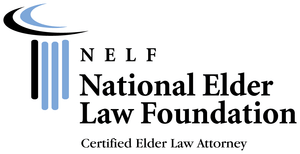Family Limited Partnership
/A family limited partnership lets you transfer assets like a family business, farm, real estate or stocks to your children now, yet you keep full control. Because you are removing these assets and any future appreciation on them from your taxable estate now, you reduce the amount of estate taxes that will have to be paid after you die. A family limited partnership is especially useful as a preventative measure when real estate or a family business might otherwise have to be liquidated to pay estate taxes.
When you set up a family limited partnership, you transfer the assets into the partnership in exchange for partnership shares. You control the general partner shares and can, over time, gift limited partnership shares to your children, removing the value of the gifted partnership interests from your estate.
Though you have a fiduciary obligation to the other owners, you control the family limited partnership as the general partner. You determine how the assets are managed, when income is distributed and how the partnership is run. Limited partners (you and/or your children) are passive -- they have no say in how the partnership is managed. Losses and profits are allocated among the partners, but no income is distributed unless you, as the general partner, decide to do so.
Partnership shares cannot be sold or transferred without your approval. And because there is no market for these shares, their value is discounted. (What would someone pay for minority shares in assets over which they would have no control?) So, you are able to transfer these assets to your children at a discounted value and remove them from your taxable estate...all without losing control.
If you gift shares in increments of $12,000, there is no gift tax. (Larger gifts can be applied to your federal gift tax exemption.) And since you are making gifts based on current value, not the appreciated value when you die, this lets you, in effect, freeze the value of your estate at the time the gifts are made.
A family limited partnership gives you more control than a corporation, in which even minority stockholders (either your children or their creditors) can have substantial voting rights and can force sales, distributions or even liquidations. You also have some protection from your children's creditors. If a creditor is awarded a limited partnership interest, the creditor has no more rights than the previous limited partner.





